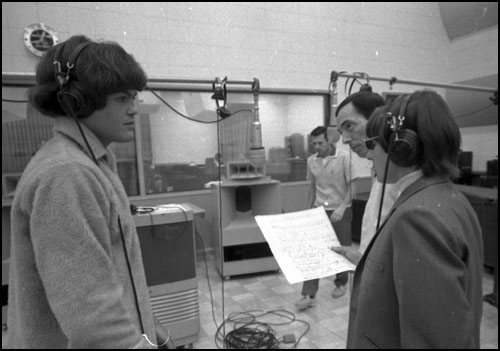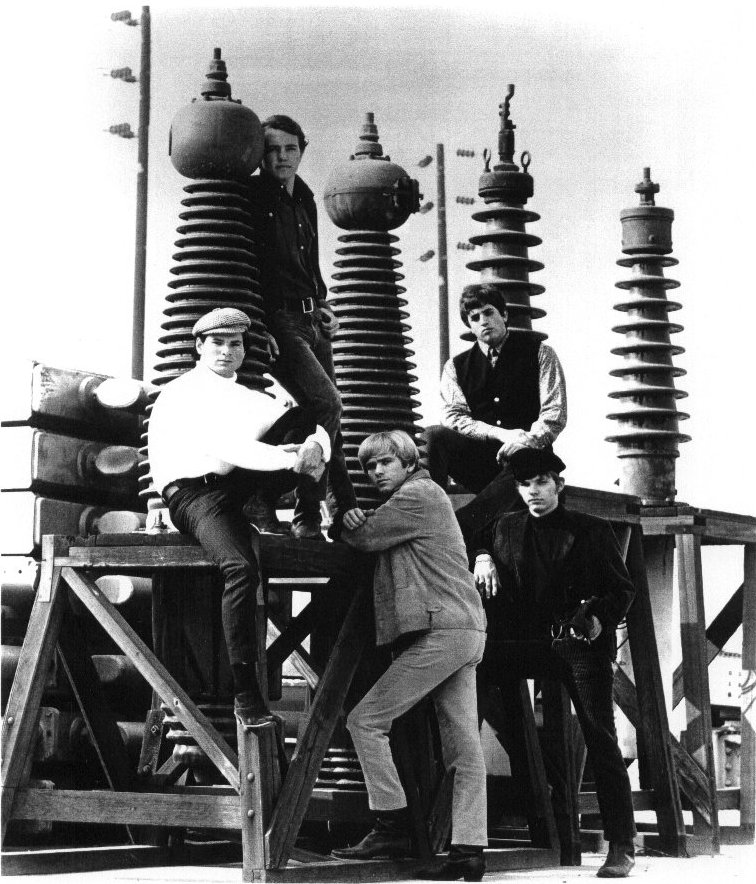

Until 1997, a large part of the Electric Prunes's history has been shrouded in mystery. What has sparked the latest resurgence is a live album recorded over 30 years ago in Sweden and aptly titled 'Stockholm '67'.
In the 1980s, Brian Hogg tried to unravel the mystery. He wrote the sleeve note to 'Long Day's Flight' and an article in the September 1986 edition of the U.K. magazine 'Record Collector'. The problem was that the full Electric Prunes story was not known, especially details about the band's disintegration. It is only recently in mid 1997 that information only known to ex-members has become publicly known.
Enough about the current for now, let's start at the beginning.
THE EARLY DAYS (1965 - mid 1966)
Before evolving into The Electric Prunes, the band started life as The Sanctions and then Jim and The Lords.
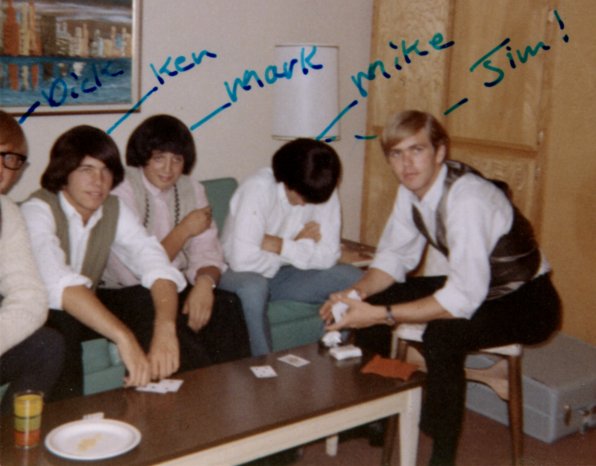
In March 1965, The Sanctions turned up at Russ Bottomley's house in Woodland Hills, California and recorded twelve classic surf / garage tracks on direct-to-disc acetate including Long Tall Sally, Money, Love Potion Number Nine and Louie, Louie. The line-up of The Sanctions was :
 James Lowe (b. San Luis Obispo, California, USA) - vocals, autoharp, guitar
James Lowe (b. San Luis Obispo, California, USA) - vocals, autoharp, guitar
 Mark Tulin (b. Philadelphia, Pennsylvania, USA; d. 26th February 2011) - bass, organ
Mark Tulin (b. Philadelphia, Pennsylvania, USA; d. 26th February 2011) - bass, organ
 Ken Williams (b. Long Beach, California, USA) - lead guitar
Ken Williams (b. Long Beach, California, USA) - lead guitar
 Michael Weakley aka 'Quint' (b. Kansas City, Missouri, USA) - drums
Michael Weakley aka 'Quint' (b. Kansas City, Missouri, USA) - drums
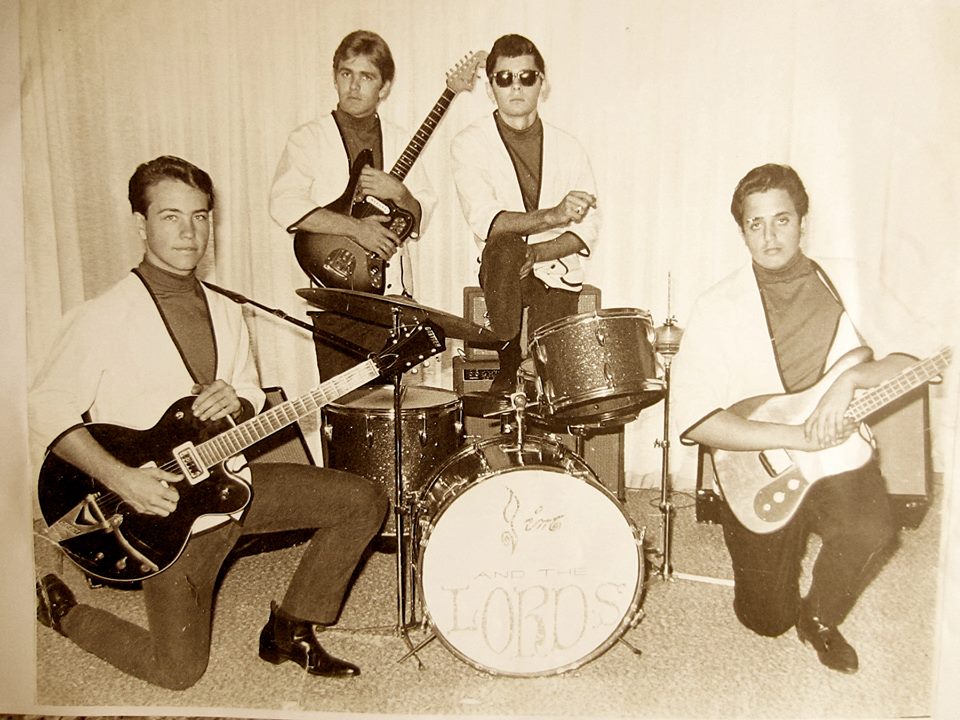
James joined up with Mark and Ken first. The latter two were still at Taft High School in the San Fernando Valley. According to Mark Tulin, the first drummer that James, Ken and Mark played with, in an incarnation or two before becoming The Electric Prunes, was a guy called Steve Acuff. He quit / was fired because surfing on Saturday was more important to him than practicing with the band. Following Steve's departure, Mike Weakley was then added on drums.
By the time The Sanctions turned up at Russ Bottomley's house for the second time in November 1965, the band had evolved into Jim and The Lords. A new band member was added to make the band a quintet but very little is known about him :
 Dick Hargrave - Organ
Dick Hargrave - Organ
Dick Hargrave was brought into the band to make up the band from a quartet (James, Mark, Ken and Quint) into a quintet and the band thought an organ would help fill out the sound and Dick owned one. How he actually got involved with the band is now lost in time but it was probably through a friend of a friend.
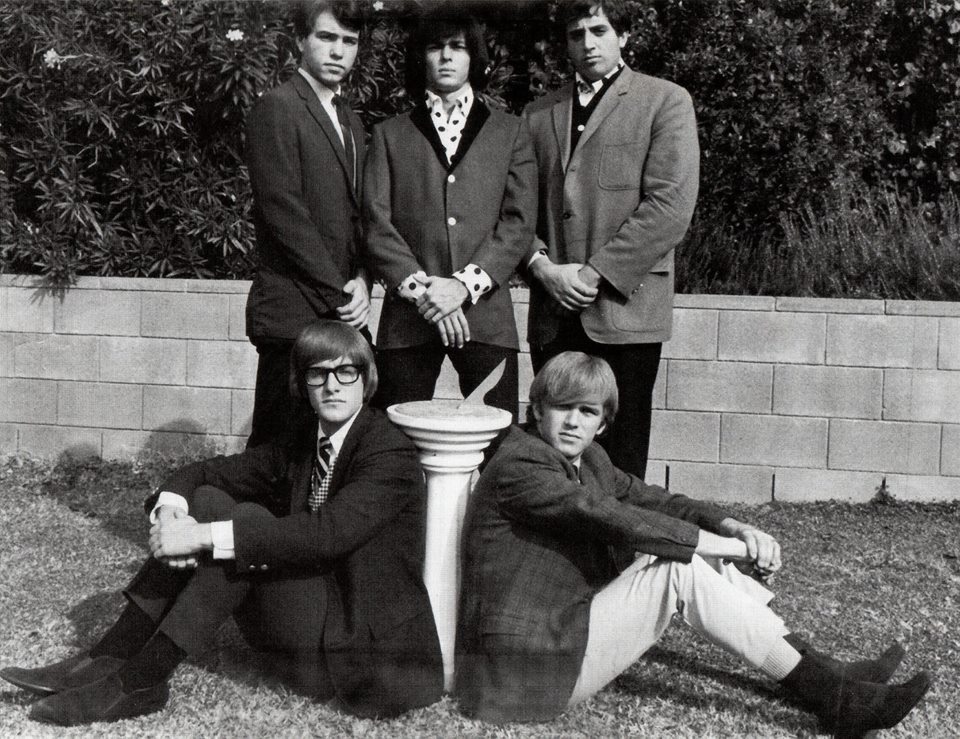
Four tracks were recorded during this session - Little (Li'l) Olive, I'm Free, I'm Down and Too Many People - again direct-to-disc.
Sixteen tracks by The Sanctions and Jim and The Lords from 1965 remained unheard and unplayed for 35 years until Heartbeat Productions cleaned up the acetates and released them on vinyl and CD in June 2000 as 'Then Came The Electric Prunes'.
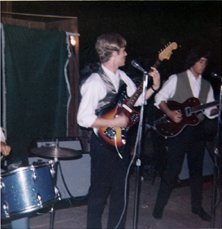
Dick saw no future in music and wanted to be a graphic artist. Also he lacked the fanatical desire the rest of the band had to rehearse and music seemed an intrusion in a busy social life.
The Electric Prunes, back to a quartet with the departure of Dick Hargrave, originated from Woodland Hills in the San Fernando Valley - part of northern Los Angeles. Many early biographies state incorrectly that the Prunes started out in Seattle. According to Preston Ritter, this misconception began when their single 'I Had Too Much To Dream Last Night' first broke in Seattle and then Boston. The Electric Prunes's first live concert to promote the record was in Seattle, where a D.J. started the rumour, which has stuck to this day, that the band were from the Seattle area.
Their lucky break came when a girl called Barbara Harris, who was selling some real estate, was walking passed the garage where the band were practicing and heard them playing. She went in and said she know someone in the record business and that she could introduce them to him.
That person was Dave Hassinger! Hassinger was the resident engineer at RCA studios and he had already made a name for himself as the engineer on many of The Rolling Stones sessions in the mid 60s. It was during the Stones' "Aftermath" recording that Hassinger decided he wanted to record a band in his own right.
